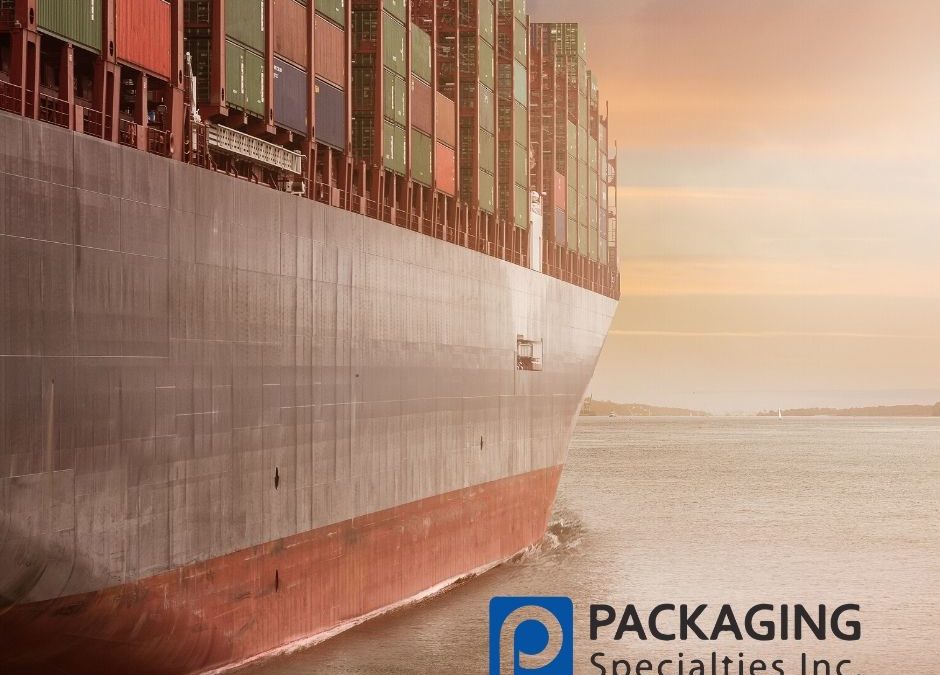When it comes to regulations concerning domestic shipments, the Department of Transportation and the Department of Energy are in charge of creating and enforcing the regulations that keep carriers – as well as the public and the environment – safe. Similar regulations are in place for international shipments; however, these policies are governed by global regulatory bodies who aim to protect life at sea, the marine environment, and the global community. Regardless of what goods you are shipping internationally, there are regulations in place to ensure the safety of the carriers, environment, and global community. As with shipments made within the U.S. borders, there are several agencies who oversee the regulation of international shipments, some of which are global and some of which are based within the flag states (the country, or “state,” in which a vessel is registered). Due to these regulations and their enforcement, shipping remains the world’s most environmentally friendly form of commercial transport.
The International Maritime Organization (IMO)
The International Maritime Organization (IMO) is the global agency in charge of regulating international shipments, which account for 90% of world trade. A United Nations agency based in London, the IMO exists to ensure global uniformity on regulations covering construction standards, navigational guidelines, and crew competence, to ensure safe handling no matter where in the world a good is being shipped. The IMO’s main focus is to protect the marine environment and ensure safety for those aboard shipping vessels. The IMO is comprised of national governments that come together for IMO Conventions where the standards governing the regulation of international shipments are proposed and voted on by all members.
The International Labour Organization (ILO)
While the IMO governs standards related to the goods being shipped, other than establishing standards of crew competence, their focus is not on the living or working conditions for those aboard shipping vessels. The International Labour Organization (ILO) establishes standards for the minimum conditions of “decent work” of the more than 1.5 million seafarers transporting the world’s shipped good. The ILO addresses almost every aspect of seafaring, including:
- Minimum requirements for working aboard a ship, such as age, medical and physical wellbeing, and the type of experience and training that is required
- Conditions of employment, including the number of work and rest hours per day, compensation, living accommodations, occupational safety, and general welfare
Flag State Enforcement of IMO Standards
The responsibility of enforcing the international shipping standards set forth by the IMO falls to the flag states in which each vessel is registered. Through inspections of the ships and shipments, flag states ensure that all ship safety and environmental protection standards are being met. In the U.S., the Department of State, the U.S. Coast Guard, the National Oceanic and Atmospheric Administration, the Environmental Protection Agency, and other governmental entities all work in concert to enforce the international shipping standards set forth by the IMO.
Additionally, these agencies represent our country’s interests at IMO Conventions where new regulations and standards are discussed each year. Most recently, the EPA worked hard to establish higher energy efficiency requirements for new ships as well as establishing both North America and the U.S. Caribbean as an Emissions Control Area (ECA). Vessels entering into any ECA are required to use compliant fuel and more advanced emission control technology as they pass through these waters.
Port State Control
In addition to the inspection and enforcement seen by the flag states, Port State Control agencies also provide the country receiving the shipment protection by inspecting incoming ships. Port State Control officers may detain foreign ships that do not meet international shipping standards. Within the U.S., the Office of Commercial Vessel Compliance in the U.S. Coast Guard oversees the Port State Control of incoming ships.
Working together, these global and national organizations establish and enforce international shipping regulations to keep life at sea, the marine environment, and the global community safe. At Packaging Specialties, we tailor each shipping container to each client’s individual needs, including those slated for international transport. Contact us today to see how we can meet your packaging needs.


Recent Comments